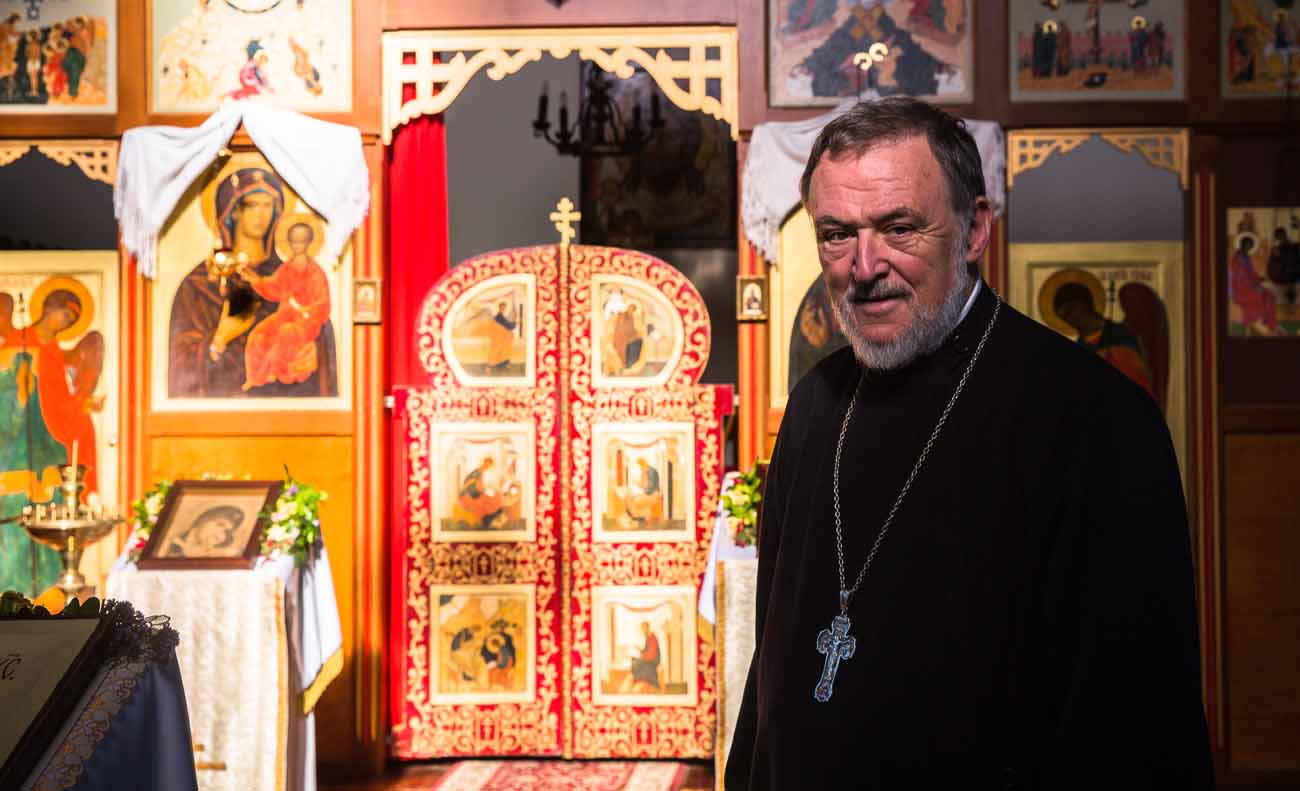MELBOURNE, Australia (CNS) — One of the smallest Eastern Catholic churches in the world, the Russian Catholic Church, faces some big issues, including its survival.
That’s the issue that will be front and center at a Congress of Russian Catholic delegates from around the world meeting in northern Italy in June. It has been organized by an Australian-based Russian Catholic priest, Father Lawrence Cross, a retired lecturer in theology at Australian Catholic University.
The congress, the first in Russian Catholic history, will occur against the backdrop of last February’s historic meeting in Havana between Pope Francis and Russian Orthodox Patriarch Kirill of Moscow. It was the first time a pope had met with the head of the Russian Orthodox Church. Both churches drifted into schism in the two centuries after the so-called Great Schism of 1054.
Father Cross explained that the tiny Russian Byzantine Catholic Church was formed by Russian Orthodox who saw the pope, the bishop of Rome, as an essential element for the fullness of orthodoxy.
These Russian Catholics, Father Cross says, should be the poster-child for ecumenical relations, living proof that reconciliation is possible. Instead, he is worried they are in danger of being lost to history.
About 30 clerical delegates from Russian Catholic communities across the world, as well as laity, will meet in Seriate, just outside Bergamo, Italy, to discuss their future and once again petition Rome for an exarch, or bishop, and the revival of the Russian Catholic Exarchate.
“We have saints and martyrs, many dead in the gulags and shot for their Russian Catholic faith. I can’t believe that was all in vain,” said Father Cross.
“This is our last hurrah. If this fails, you can forget about the Russian Catholic movement,” he said.
The Russian Catholic Church began in the 19th century with the writings and work of philosopher, critic and mystic Vladimir Soloviev. He spoke against the unhealthy relationship between the Orthodox Church and the state, at that time the courts of Czars Alexander III and Nicholas II. He saw that the only way to end the corruption in Moscow was for the Orthodox Church to find a point of reference for unity and freedom outside itself. This guardian of freedom was Rome.
 By Natasha Marsh • Catholic News Service
By Natasha Marsh • Catholic News Service